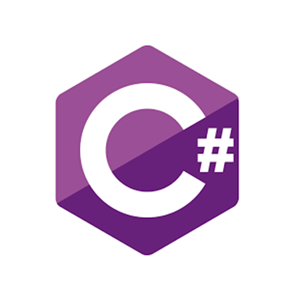Q:
C#.Net find output programs (Exception Handling) | set 3
belongs to collection: C#.Net find output programs
C#.Net find output programs
- C#.Net find output programs (Data Types) | set 1
- C#.Net find output programs (Data Types) | set 2
- C#.Net find output programs (Data Types) | set 3
- C#.Net find output programs (Operators) | set 1
- C#.Net find output programs (Operators) | set 2
- C#.Net find output programs (Operators) | set 3
- C#.Net find output programs (const Keyword) | set 1
- C#.Net find output programs (this Keyword) | set 1
- C#.Net find output programs (readonly Keyword) | set 1
- C#.Net find output programs (static Keyword) | set 1
- C#.Net find output programs (static Keyword) | set 2
- C#.Net find output programs (if else) | set 1
- C#.Net find output programs (if else) | set 2
- C#.Net find output programs (if else) | set 3
- C#.Net find output programs (switch statement) | set 1
- C#.Net find output programs (switch statement) | set 2
- C#.Net find output programs (switch statement) | set 3
- C#.Net find output programs (goto) | set 1
- C#.Net find output programs (Loops) | set 1
- C#.Net find output programs (Loops) | set 2
- C#.Net find output programs (Loops) | set 3
- C#.Net find output programs (Arrays) | set 1
- C#.Net find output programs (Arrays) | set 2
- C#.Net find output programs (Arrays) | set 3
- C#.Net find output programs (default Arguments) | set 1
- C#.Net find output programs (default Arguments) | set 2
- C#.Net find output programs (Parameter Passing) | set 1
- C#.Net find output programs (Enumeration) | set 1
- C#.Net find output programs (Enumeration) | set 2
- C#.Net find output programs (Boxing & Unboxing) | set 1
- C#.Net find output programs (Structure) | set 1
- C#.Net find output programs (Structure) | set 2
- C#.Net find output programs (Structure) | set 3
- C#.Net find output programs (Classes & Objects) | set 1
- C#.Net find output programs (Classes & Objects) | set 2
- C#.Net find output programs (Classes & Objects) | set 3
- C#.Net find output programs (Constructors & Destructors) | set 1
- C#.Net find output programs (Constructors & Destructors) | set 2
- C#.Net find output programs (Constructors & Destructors) | set 3
- C#.Net find output programs (Inheritance) | set 1
- C#.Net find output programs (Inheritance) | set 2
- C#.Net find output programs (Inheritance) | set 3
- C#.Net find output programs (Interface) | set 1
- C#.Net find output programs (Interface) | set 2
- C#.Net find output programs (Method Overloading) | set 1
- C#.Net find output programs (Method Overloading) | set 2
- C#.Net find output programs (Method Overriding) | set 1
- C#.Net find output programs (Method Overriding) | set 2
- C#.Net find output programs (Method Overriding) | set 3
- C#.Net find output programs (Operator Overloading) | set 1
- C#.Net find output programs (Operator Overloading) | set 2
- C#.Net find output programs (Operator Overloading) | set 3
- C#.Net find output programs (Namespace) | set 1
- C#.Net find output programs (Namespace) | set 2
- C#.Net find output programs (Exception Handling) | set 1
- C#.Net find output programs (Exception Handling) | set 2
- C#.Net find output programs (Exception Handling) | set 3




 c# programming
c# programming
Answer 1:
Output:
Explanation:
In the above program, we created the MyException class which is inherited by the Exception class. Here, we defined a no-argument constructor and call base class constructor with the message "My Exception generated" using the base keyword.
Now look to the Main() method, here we created object X of MyException class and throw an exception that will be caught by catch block and print "My Exception generated" message on the console screen.
Answer 2:
Output:
Explanation:
In the above program, we created the MyException class which is inherited by the Exception class. Here, we defined a no-argument constructor with an empty body.
Now look to the Main() method, here we created object X of MyException class and throw an exception that will be caught by catch block and print "Exception of type 'MyException' was thrown" message on the console screen because we did not assign any message to the Message property.
Answer 3:
Output:
Explanation:
The above program will generate syntax errors because of the below statement,
this.Message = "My Exception Generated";In the above statement, we assigned a string message to the read-only property.
Answer 4:
Output:
main.cs(23,8): error CS1525: Unexpected symbol `{'Explanation:
The above program will generate because we use final instead of finally. final is not any built-in keyword in C#.
Answer 5:
Output:
Explanation:
In the above program, we two local variables A and D initialized with 'A' and 0.0 respectively.
D = (double)A; Console.WriteLine(D);In the above statement, we typecast the value variable A into double and assigned to 'D', then it will print the ASCII value of 'A', that is 65 on the console screen.
After that, finally block gets executed and print "program finished" message on the console screen.
need an explanation for this answer? contact us directly to get an explanation for this answer